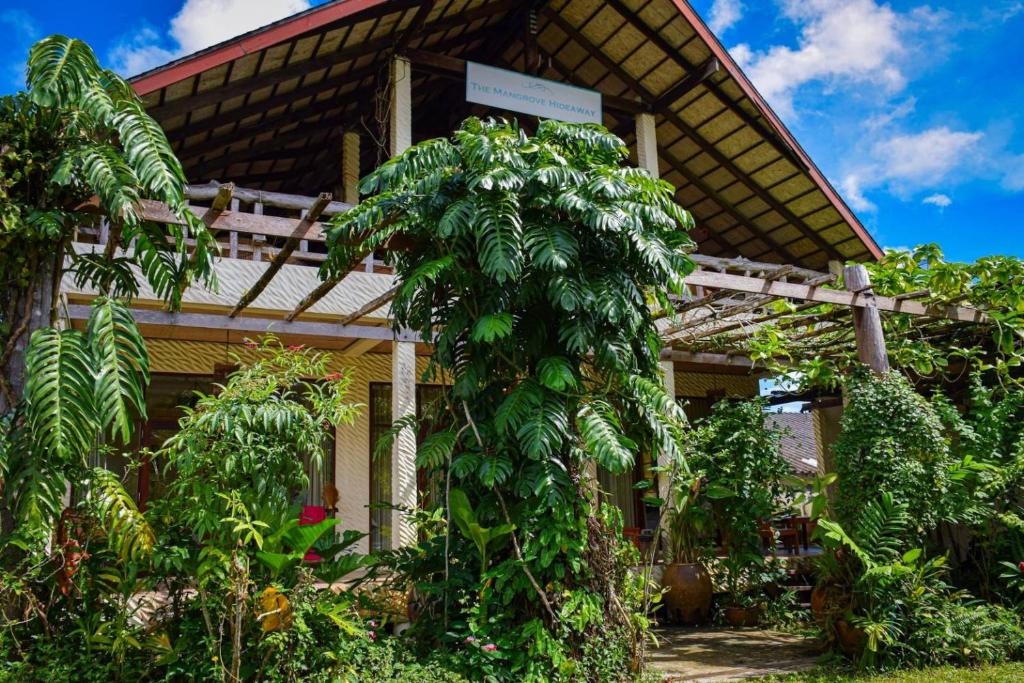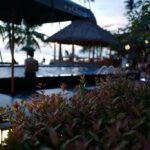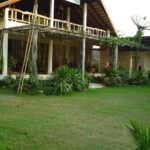Nestled along the pristine coastline of Koh Chang, Thailand’s second-largest island, The Mangrove Hideaway stands as more than just a luxury retreat. This eco-conscious resort has positioned itself at the forefront of sustainable tourism, demonstrating how hospitality businesses can actively contribute to environmental conservation while providing exceptional guest experiences.
A Living Laboratory of Conservation
The Mangrove Hideaway takes its name seriously, serving as both guardian and showcase of one of nature’s most crucial ecosystems. Mangrove forests act as natural barriers against coastal erosion, provide nursery habitats for marine life, and serve as carbon sinks that help combat climate change. The resort’s commitment extends far beyond its boundaries, with active participation in mangrove restoration projects across Koh Chang’s coastline.
Through partnerships with marine biologists and local conservation groups, the resort has facilitated the planting of over 10,000 mangrove saplings in degraded coastal areas. Guests are invited to participate in these restoration efforts, turning their vacation into a meaningful contribution to environmental preservation. This hands-on approach creates lasting memories while fostering a deeper understanding of ecological interconnectedness.
Community-Centered Sustainability
True sustainability extends beyond environmental concerns to encompass social and economic dimensions. The Mangrove Hideaway has woven itself into the fabric of local communities, creating a model of tourism that uplifts rather than displaces. The resort sources 80% of its produce from local farmers, supporting traditional agriculture while reducing transportation emissions.
Local artisans find their crafts featured throughout the property, from handwoven textiles to carved wooden furnishings. The resort’s spa exclusively uses products made by local cooperatives, incorporating traditional Thai healing practices with ingredients sourced from the island’s abundant natural resources. This approach ensures that tourism revenue flows directly to community members, creating sustainable livelihoods that don’t depend on depleting natural resources.
Innovation in Action
The resort’s commitment to sustainability is evident in its innovative infrastructure. Solar panels and wind turbines provide 70% of the property’s energy needs, while an advanced water recycling system ensures minimal waste. The buildings themselves are constructed using locally sourced, sustainable materials and designed to maximize natural ventilation, reducing the need for artificial cooling.
Perhaps most impressively, The Mangrove Hideaway operates its own organic waste processing facility, converting kitchen scraps and garden waste into nutrient-rich compost that supports the resort’s organic gardens. Guests can tour this facility and learn about circular economy principles in practice.
Educational Tourism Reimagined
The resort has transformed the traditional concept of leisure travel by integrating education seamlessly into the guest experience. Daily nature walks led by marine biologists and local guides provide insights into mangrove ecology, while evening presentations explore topics ranging from sustainable fishing practices to coral reef conservation.
The resort’s Marine Discovery Center houses interactive exhibits and offers snorkeling expeditions that double as citizen science projects. Guests contribute to ongoing research by documenting marine life sightings and water quality measurements, making their vacation a contribution to scientific understanding of coastal ecosystems.
Measuring Impact, Ensuring Accountability
The Mangrove Hideaway doesn’t just talk about sustainability—it measures and reports its impact. Annual sustainability reports detail carbon footprint reductions, waste diversion rates, and community investment figures. The resort has achieved carbon neutrality and is working toward becoming carbon negative by 2030 through expanded reforestation efforts and renewable energy investments.
Water consumption has been reduced by 40% through conservation measures and recycling systems, while the resort diverts 90% of its waste from landfills through composting, recycling, and upcycling programs. These metrics aren’t just internal benchmarks—they’re shared transparently with guests and the broader hospitality industry to encourage similar initiatives.
Ripple Effects Across the Island
The resort’s influence extends well beyond its property lines. By demonstrating the viability of sustainable tourism, The Mangrove Hideaway has inspired other businesses on Koh Chang to adopt similar practices. A network of eco-conscious accommodations, restaurants, and tour operators has emerged, creating a destination-wide commitment to sustainability.
Local schools now benefit from the resort’s environmental education programs, with students participating in beach cleanups, mangrove restoration, and marine conservation projects. These young environmental stewards represent the future of Koh Chang’s relationship with its natural heritage.
The Future of Responsible Travel
The Mangrove Hideaway represents a paradigm shift in how we think about travel and tourism. Rather than viewing natural environments as backdrops for recreation, the resort positions guests as active participants in conservation efforts. This approach creates more meaningful travel experiences while generating tangible benefits for ecosystems and communities.
As climate change and environmental degradation threaten destinations worldwide, The Mangrove Hideaway offers a blueprint for tourism that heals rather than harms. By choosing to stay at properties that prioritize sustainability, travelers can ensure their adventures contribute to the preservation of the very places they seek to experience.
The success of The Mangrove Hideaway proves that luxury and sustainability are not mutually exclusive. Instead, they can be mutually reinforcing, creating experiences that are both indulgent and impactful. For Koh Chang, this resort represents not just a place to stay, but a vision of a future where tourism serves as a force for environmental restoration and community empowerment.
In an era where travelers increasingly seek authenticity and purpose in their journeys, The Mangrove Hideaway demonstrates that the most luxurious experience of all may be knowing that your presence helps preserve paradise for future generations.


